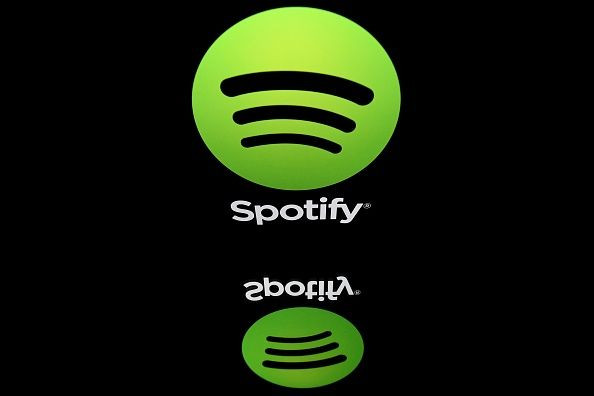Why Spotify Is Suing Apple

The already testy relationship between Apple (NASDAQ:AAPL) and Spotify (NYSE:SPOT) is getting worse and worse. Spotify has filed an antitrust complaint against Apple in the European Union. Apple fired back with a statement accusing Spotify of wanting "all the benefits of a free app without being free." Spotify quickly returned to the war of words, calling Apple a "monopolist."
What's all this about? Why can't we all just get along?
The "Apple tax" and beyond: what Spotify wants
Spotify's anger -- and its lawsuit -- spring from the hefty chunk of subscription payments that Apple takes when users sign up for services through its App Store. The so-called Apple tax takes 30% of users' subscription fees for the first year and 15% of fees after that.
That's a big chunk of the cash that users spend, though not all Spotify users sign up through Apple's App Store. But Spotify's complaints go beyond the Apple tax.
In fact, Spotify has launched a web page to detail its beef with Apple. Spotify paints a picture of a company that is using all different kinds of resources and strategies to keep its competitors down. Siri does not play nice with Spotify, for instance (she works well with Apple Music, naturally). And Spotify says that Apple won't let it tell customers through the iOS app about any other way to upgrade to Spotify Premium -- it's App Store payments (and the accompanying Apple tax) or nothing. Spotify claims that Apple has stonewalled its attempts to create an app for the Apple Watch, too, and has blocked updates to the Spotify app for unexpected and arbitrary reasons.
Apple's side of the story
Apple, of course, rejects the idea that it is engaging in unfair competition. In an unusually confrontational statement, Apple argued that Spotify's position is disingenuous:
After using the App Store for years to dramatically grow their business, Spotify seeks to keep all the benefits of the App Store ecosystem -- including the substantial revenue that they draw from the App Store's customers -- without making any contributions to that marketplace. At the same time, they distribute the music you love while making ever-smaller contributions to the artists, musicians and songwriters who create it -- even going so far as to take these creators to court.
Apple disputed Spotify's claims of stonewalling and arbitrary update denials, essentially framing those parts of Spotify's case as a smokescreen designed to hide Spotify's "real" goal of getting special treatment in the App Store. Apple's statement also argued that "only a tiny fraction of [Spotify's] subscriptions fall under Apple's revenue-sharing model."
Why is this happening in Europe?
Spotify is suing Apple in Europe because the laws there could be more favorable to its case. The treaties that form and govern the EU include rules against companies abusing their "dominant market position" to render their competition ineffective.
Europe's laws are arguably favorable to Spotify's position, but the venue might not be ideal for the facts of the case. Apple's iOS has a considerably less "dominant" market position in Europe than in the U.S. -- Android has around 70% market share in Europe (Apple's iOS has less than 30% of the market in Europe, whereas it has around 40% of the U.S. market).
All eyes on Apple and Spotify
Spotify is clearly waging its war in the court of public opinion as well, but the legal consequences seem likely to be more important. Apple isn't the only company trying to make big bucks by "taxing" services on its platform -- Alphabet (NASDAQ:GOOG) (NASDAQ:GOOGL) uses its operating systems and Google Play Store in the same way, and Amazon (NASDAQ:AMZN) has platform "taxes" of its own. If the EU starts cracking down on Apple's use of its payment systems, platforms, and hardware to edge out competition, that will surely matter to Alphabet and Amazon sooner or later, too.
This article originally appeared in the Motley Fool.
John Mackey, CEO of Whole Foods Market, an Amazon subsidiary, is a member of The Motley Fool's board of directors. Suzanne Frey, an executive at Alphabet, is a member of The Motley Fool's board of directors. Stephen Lovely owns shares of Amazon and Apple. The Motley Fool owns shares of and recommends Alphabet (A shares), Alphabet (C shares), Amazon, and Apple. The Motley Fool is long January 2020 $150 calls on Apple and short January 2020 $155 calls on Apple. The Motley Fool has a disclosure policy.





















